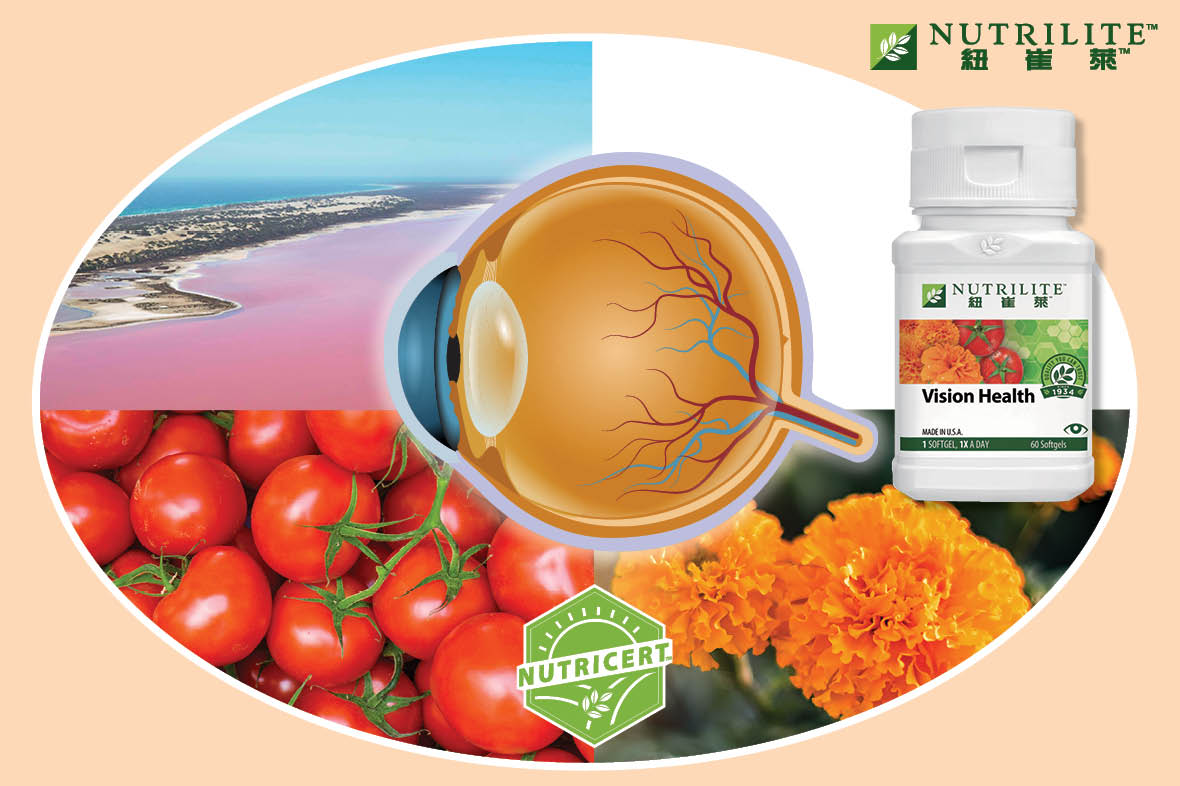

We can now take a more scientific way to promote eye health thanks to phytonutrients.
Lens
Lycopene in tomatoes promotes lens health
Improves vision focus with higher definition, relieves eye fatigue
Improves antioxidation, delays lens aging
Retina
The beta-carotene in algae will be converted into vitamin A when the body needs it so that you don’t need to worry about excessive intake. It also promotes retinal health
Key nutrients for photoreceptor cells, improving daytime and nighttime vision
Vitamin A promotes the health of mucous membranes, regulates the normal secretion of tears, nourishes the eyes and relieves dryness
Attention contact lens wearers – eye drops are not the same as natural tears!
Long-time use of contact lenses can easily lead to dry eyes and fatigue, which may result in a greater dependence on eye drops. Unfortunately, common eye drops contain preservatives, and the ingredients are different from natural tears – so don’t view them as an alternative to tears
Macula
Lutein and zeaxanthin found in marigold can promote macular health
Equivalent to 20 carrots1
Filters 90% of blue light2, protects retinal health
Clinical research indicates that the golden ratio (5:1) of lutein and zeaxanthin increases Macular Pigment Optical Density (MPOD)3
The macula has sufficient lutein and zeaxanthin protection to filter blue light and reduce free radical damage
Improves visual sensitivity
Source
Lutein May Decrease Your Risk of Macular Degeneration, Author George Torrey, Ph.D. All guide Food Ingredients Table 2020 Created from Jikkyo Shuppan. Calculated as 1 carrot (medium) = 200g
Hammond et al. J Opt Soc Am A Opt Image Sci Vis. 1997; 14:1187-96.
Hammond et al. Invest Ophthalmol Vis Sci. 2014; 55(12): 8583-9
Save to
Delete
Are you sure?
Do you really want to delete this bookmark list? This process cannot be undone
Confirm